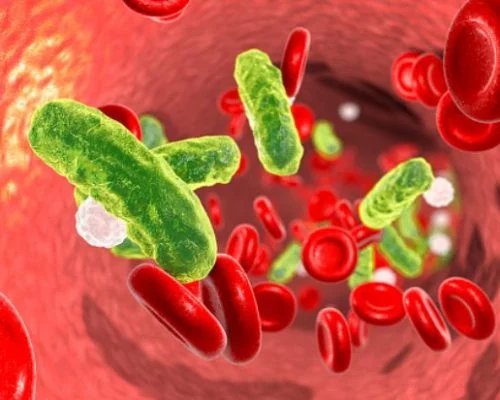Fapon, LASCCO, Abionic Formed Strategic Collaboration for PSP Sepsis Diagnosis in China
27 October 2023 | Friday | News

Image Source : Public Domain
This strategic partnership will enable Fapon to engage in the research, development, manufacturing, and commercialization of PSP raw materials and chemiluminescent immunoassay (CLIA)-based reagent solutions within the Chinese market. PSP, as a reliable biomarker to predict sepsis, has been patented in many countries. The PSP immunoassay has obtained CE mark approval under the In Vitro Diagnostic Medical Devices (IVDR) regulations, Australian registration, and FDA 510(k) clearance is expected in 2024. By leveraging their respective expertise in technology, medicine and market, the three companies will join forces in the rapid screening and clinical diagnosis of sepsis, as well as providing guidelines for antibiotic use.
This strategic partnership will usher in a significant breakthrough in the medical field, removing barriers to early sepsis diagnosis. Performing PSP testing on high-risk individuals can flag potential sepsis before the onset of clinical symptoms. Early detection enables timely intervention and treatment, leading to reduced risks of organ dysfunction, improved survival rates, and optimized allocation of medical resources.
Sepsis a life-threatening condition caused by a dysregulated host response to infection, which can progress to multiple organ dysfunction, septic shock and even death. Research shows that every hour of delay in the administration of antibiotics increases the chances of mortality by 7% to 10% [1]. However, the early warning signs and symptoms of sepsis, such as fever, chills, nausea, fatigue, pain, etc., are generic and non-specific, making it extremely challenging to differentiate sepsis from other conditions. Currently, the diagnosis of sepsis in clinical practice often relies on either "infection/suspected infection + scoring systems (qSOFA/SOFA/NEWS)" or the detection of biomarkers such as C-reactive protein (CRP). However, these methods cannot meet the clinical needs for early diagnosis of sepsis as they have major limitations.
PSP, an acute-phase reactant, is secreted by pancreatic acinar cells. Its level is closely associated with the presence and severity of sepsis. Sufficient evidence has shown that PSP exhibits great accuracy as an early warning sign of sepsis. The PSP level in the blood shows a significant upward trend three days prior to the clinical diagnosis of sepsis[2,3]. Even in inflammatory confounding situations such as sterile inflammation and inhalation injury in burnt patients or post-trauma and post-surgery inflammatory host responses, PSP is able to specifically recognize disease regardless of other inflammatory factors[4,5]. Therefore, PSP is a reliable early marker of sepsis. Moreover, the use of rapid point-of-care (POC) tests to measure PSP levels presents a significant advantage for patients who need intensive sepsis risk management. By quickly delivering accurate results, this POC test empowers physicians to promptly start appropriate treatments, ultimately increasing patient survival rates.
Fapon is dedicated to advancing the discovery and research of innovative biomarkers, with the goal of accelerating the transition of such markers to clinical applications. Obtaining the PSP license for the diagnosis of sepsis will further enhance Fapon's potential for innovative applications in the diagnosis of infectious diseases. PSP has been widely acclaimed by physicians and patients across the United States, Europe, Australia, Switzerland, and other countries. Through this partnership, Fapon will promptly bring to market PSP raw materials and reagent solutions for CLIA platforms. The objective is to contribute to the early screening of sepsis and developing more clinical applications, and offer swifter and improved solutions to septic patients in China.
Committed to bringing earlier, more accurate, more convenient, and more accessible innovative diagnostic applications to the IVD industry and patients, Fapon is making every effort to develop a one-stop biomarker solution for neurology, infectious diseases, ophthalmology, obstetrics, metabolism, and oncology.
Most Read
- How Does GLP-1 Work?
- Innovations In Magnetic Resonance Imaging Introduced By United Imaging
- Management of Relapsed/Refractory Multiple Myeloma
- 2025 Drug Approvals, Decoded: What Every Biopharma Leader Needs to Know
- BioPharma Manufacturing Resilience: Lessons From Capacity Expansion and Supply Chain Resets from 2025
- APAC Biopharma Review 2025: Innovation, Investment, and Influence on the Global Stage
- Top 25 Biotech Innovations Redefining Health And Planet In 2025
- The New AI Gold Rush: Western Pharma’s Billion-Dollar Bet on Chinese Biotech
- Single-Use Systems Are Rewiring Biopharma Manufacturing
- The State of Biotech and Life Science Jobs in Asia Pacific – 2025
- Asia-Pacific Leads the Charge: Latest Global BioSupplier Technologies of 2025
- Invisible Threats, Visible Risks: How the Nitrosamine Crisis Reshaped Asia’s Pharmaceutical Quality Landscape
Bio Jobs
- Sanofi Turns The Page As Belén Garijo Steps In And Paul Hudson Steps Out
- Global Survey Reveals Nearly 40% of Employees Facing Fertility Challenges Consider Leaving Their Jobs
- BioMed X and AbbVie Begin Global Search for Bold Neuroscience Talent To Decode the Biology of Anhedonia
- Thermo Fisher Expands Bengaluru R&D Centre to Advance Antibody Innovation and Strengthen India’s Life Sciences Ecosystem
- Accord Plasma (Intas Group) Acquires Prothya Biosolutions to Expand Global Plasma Capabilities
- ACG Announces $200 Million Investment to Establish First U.S. Capsule Manufacturing Facility in Atlanta
- AstraZeneca Invests $4.5 Billion to Build Advanced Manufacturing Facility in Virginia, Expanding U.S. Medicine Production
News











